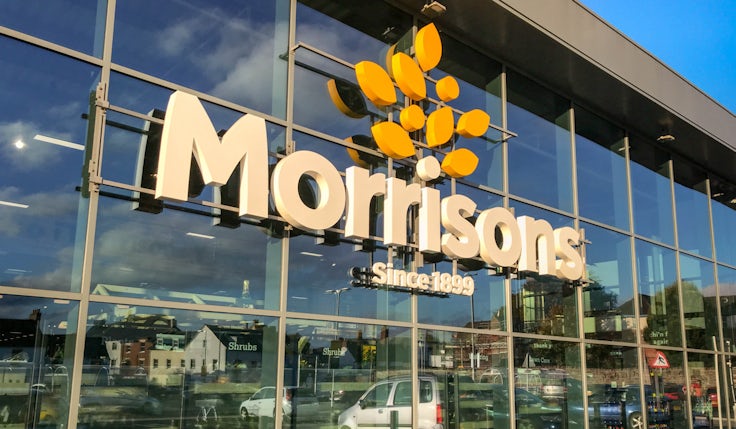Are brands living up to their purpose during the coronavirus crisis?
As purpose is put to the test in the midst of the global Covid-19 pandemic, which brands are stepping up and which are missing the mark?

With the world in lockdown, the value of sterling at a 35 year low and the entire population in fear of illness and job losses, attention is turning to the ways in which familiar brands are responding to the coronavirus crisis.
Talk is cheap, but effective action can come with a hefty price tag. Brands which have made noise about caring for customers and communities, the environment, or more specific causes, may have to dig deep if they are to keep the promises they made now that the world is in the grip of a deadly pandemic.
What happens when brand purpose is put to the test – and will customers forgive those brands that don’t meet the mark?
The situation may be further complicated by the events of the recent year. Co-founder and managing director of brand purpose agency Verity London, Debra Sobel, says that years of political upheaval have reduced trust in politicians to the extent that consumers are increasingly looking to companies to solve societal issues.
A global crisis means those brands have to dig deep, says Sobel: “There are winners and losers, and the intelligent brands, the competitive brands, are the ones that realise they need to activate their purpose now.
“They need to communicate effectively and be authentic. In the long term they will gain.”
Pret a Manger is among those brands that have taken decisive action. The coffee and sandwich chain closed its seating areas to operate on a takeaway-only basis in a bid to reduce social contact and prevent virus transmission.
Pret has also extended its support for hard-pressed NHS workers, offering them hot drinks for free and implementing a 50% discount on all other products. CEO Pano Christou announced the move in his blog, where he thanked NHS workers for all their hard work. The message rapidly gained public support.
“The Pret family and the whole world are in uncharted territory, and it is important that we show solidarity and stand by each other in this difficult time,” he wrote.
“I had my eldest son, who has asthma, in tears earlier this week and we’re all seeing the impact on our friends and families. The teams on the frontline of the NHS are doing an extraordinary job and deserve all our support through this crisis. Hopefully this small step helps brighten their day.”
Making purpose count
Pret a Manger is not alone in deploying rapid, but appropriate action that links to its wider purpose.
The National Trust is keeping to its mission to make the UK’s heritage and open spaces accessible. Despite closing most of its historic buildings to visitors to aid social distancing, the National Trust is keeping as many of its historic gardens as possible open for free.
“The National Trust was founded 125 years ago for the benefit of the entire nation,” says director general, Hilary McGrady.
“We want to honour our mission – to enable people and nature to thrive. Over the coming weeks we will do all that we can to keep on providing public benefit through caring for places and giving people access wherever possible.”
The teams on the frontline of the NHS are doing an extraordinary job and deserve all our support .
Pano Christou, Pret
Building society Nationwide is among the brands opening branches early for elderly and vulnerable customers to help them avoid crowds where they could be at greater risk of getting ill.
“Lots of good work is being done across and within communities throughout the length and breadth of the UK and we want to do as much as we can,” says Nationwide branch network director, Mandy Beech.
“We understand the current situation is likely to hit the elderly and vulnerable the hardest, not only because of the higher risk of catching coronavirus, but also through potentially feeling isolated from the wider world should this issue continue for a longer period.”
The virus has caused a perfect storm for supermarkets. It has fallen to retailers to shield elderly or vulnerable customers from the stockpiling being carried out by more agile consumers, while protecting their own staff who are dealing with massive demand, supply shortages, aggressive customers and risks to their own health.
There is now a broad consensus that restrictions are needed to prevent customers stockpiling at the expense of vulnerable shoppers. Asda, Sainsbury’s and Aldi, for example, have all put limits on how many of each item customers may buy.
‘Feed the nation’: Morrisons changes core purpose in response to coronavirus
Morrisons has gone further, introducing guarantees on sick pay – including to those staff who are self-isolating rather than ill – expanding home deliveries to those in need and committing to pay small suppliers faster to relieve the pressure on SMEs.
The retailer is looking recruit more pickers and drivers to service vulnerable customers with home deliveries, creating 3,500 new jobs in the process. The supermarket has also created a range of simple-to-order food parcels, including options for vegetarians.
“We expect the days, weeks and months ahead to be very testing and we are determined to do our bit,” says Morrisons chief executive, David Potts. “These measures will support our very hard-working colleagues, enable us to provide more food to more people in their homes and create opportunities for people whose jobs are affected by the coronavirus.”

These are all examples of companies judging actions well, says Sobel.
“The problem with purpose is that you have to get it right. Because otherwise you will be accused of piggybacking, or a kind of purposewashing to try and promote your own brand,” she states.
“That’s not good purposeful marketing. That’s not good marketing, to try and profiteer off the back of this [crisis].”
Missing the mark
Equally dangerous could be action that leaves brands looking uncaring.
Electric car maker Tesla may be considering a U-turn on its coronavirus response. The company was accused of breaching a demand from the local sheriff’s department to conduct only minimal operations at its California factory.
Tesla was apparently still building cars at the plant, albeit with a smaller workforce than usual, but one required to be at work during the health scare. This response seemed to contradict founder Elon Musk’s mission, who in 2019 said that what drives him is the “fundamental goodness of Tesla”.
We expect the days, weeks and months ahead to be very testing and we are determined to do our bit.
David Potts, Morrisons
After an outcry over the way he was perceived to be treating employees, Musk responded to social media pressure by saying the factory will be turned over to help make medical equipment if needed.
Elsewhere, Virgin Atlantic announced it would implement cuts in flights to protect customers in the wake of a sudden slump in bookings. It also announced that it would impose a freeze on recruitment and restrictions on non-essential staff travel.
As the crisis has worsened, the airline went further. It is offering a one-off severance package to employees who want to leave, six to 12 month sabbaticals to those thinking of a break, delayed pay rises into 2021 and has reduced its contribution to staff pensions.
An 80% reduction in flights from late March will see Virgin ground around three quarters of its fleet, retaining a focus on core routes. As a result, staff will be required to take eight weeks unpaid leave at some point over the next three months, though the cost to them will be spread across six monthly pay packets.
The behaviour of the airline at this time of crisis feels at odds with Virgin Atlantic’s self-styled identity as the “fun, friendly, fabulous choice that made travel attainable for everyone”.

To rub salt in the wound, company chairman Peter Norris called on the government to arrange an emergency bailout for the airlines of £7.5bn to “bolster confidence” and prevent credit card processors withholding customer payments.
In a statement Virgin Atlantic said it needs alleviation for the full summer season in order to match supply to demand, reduce costs and prevent unviable flying and corresponding CO2 emissions. The airline believes that with this support it can “weather this storm ” and emerge in a position to “assist the nation’s economic recovery”.
Consumers shared their frustrations with Virgin Atlantic on social media, commenting on the potential bailout of a company they associate with a high profile billionaire owner, while the NHS is struggling to treat ill pensioners.
Sobel believes people will remember this reaction from Virgin Atlantic, in the same way they will remember the generosity of Pret a Manger.





